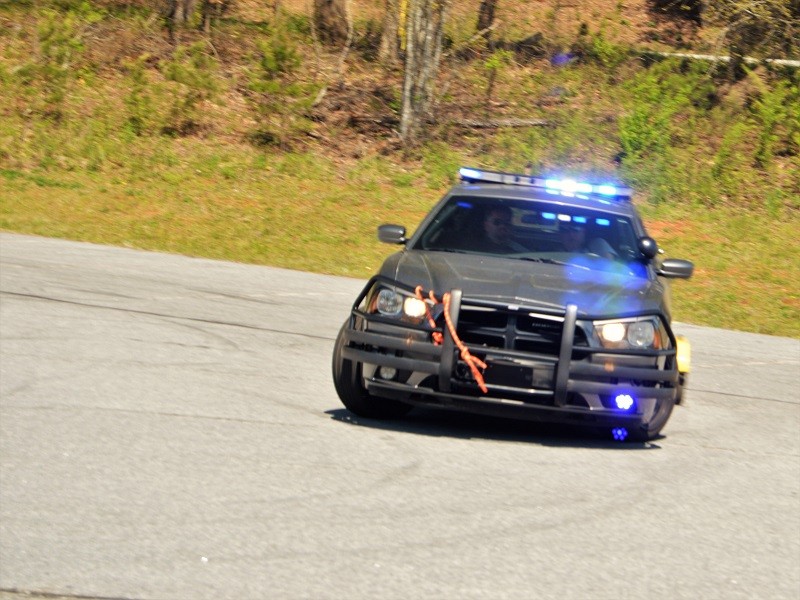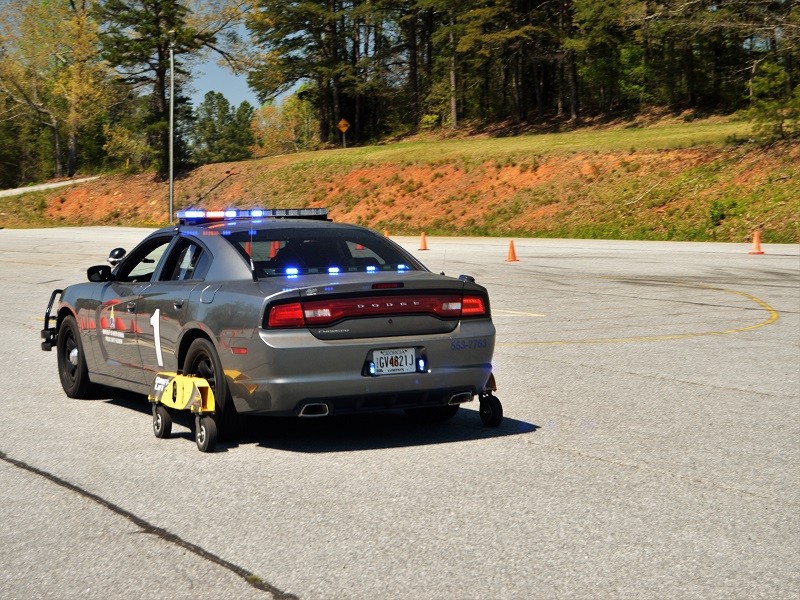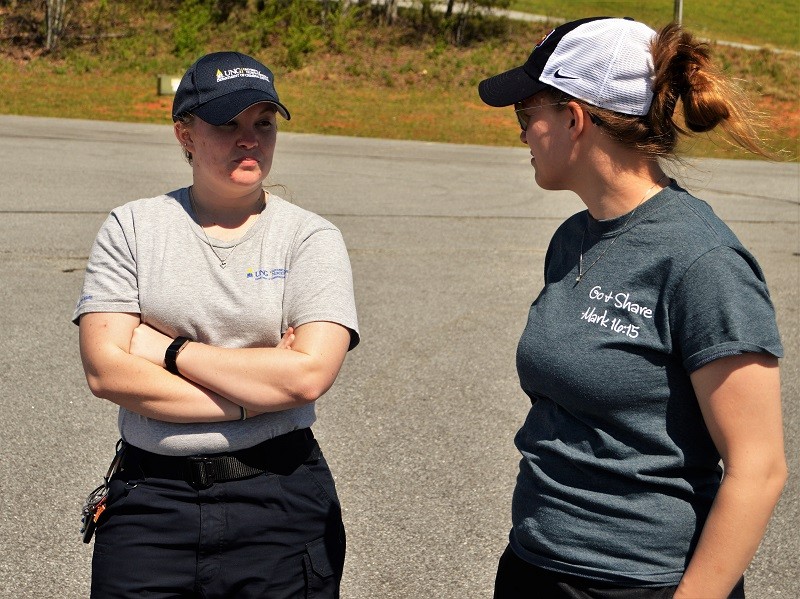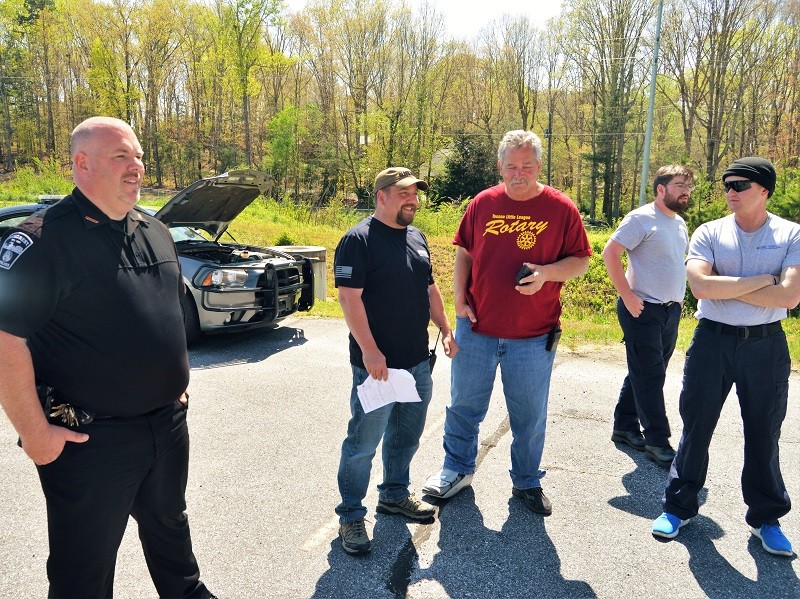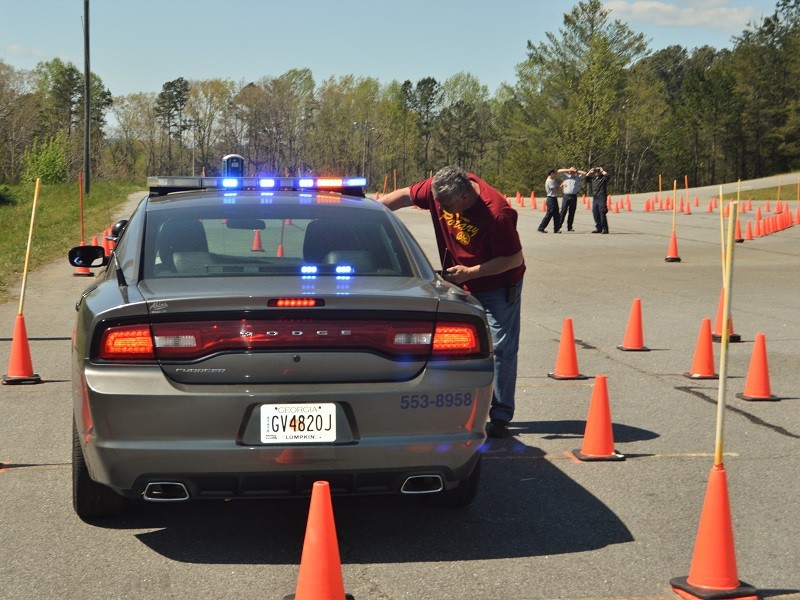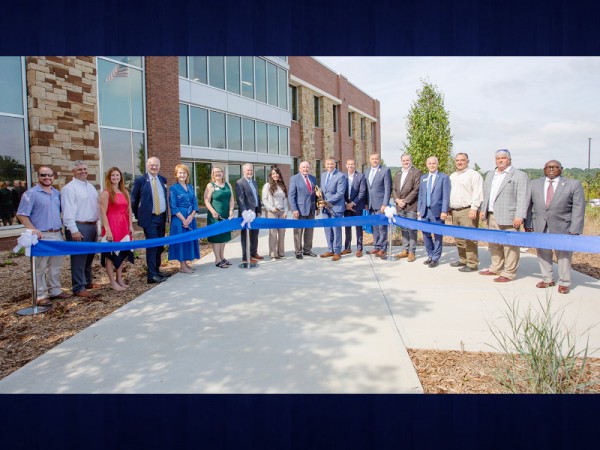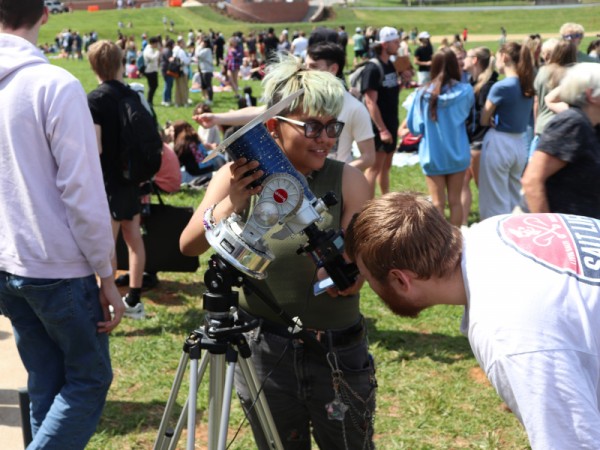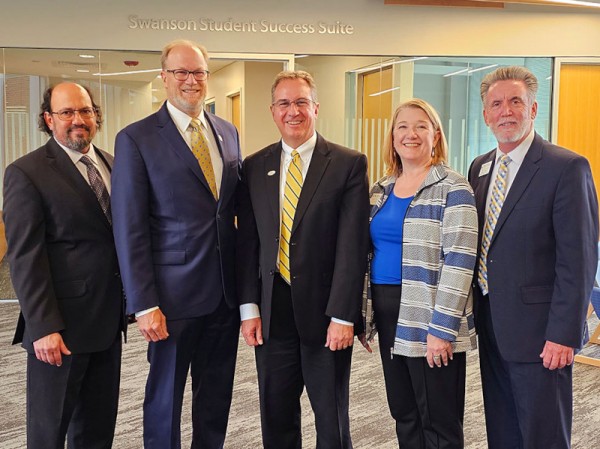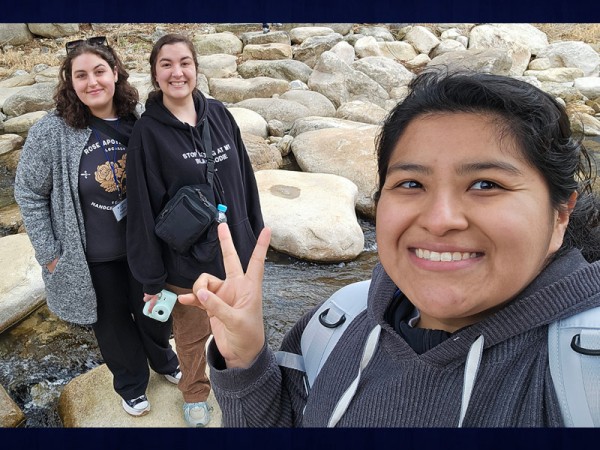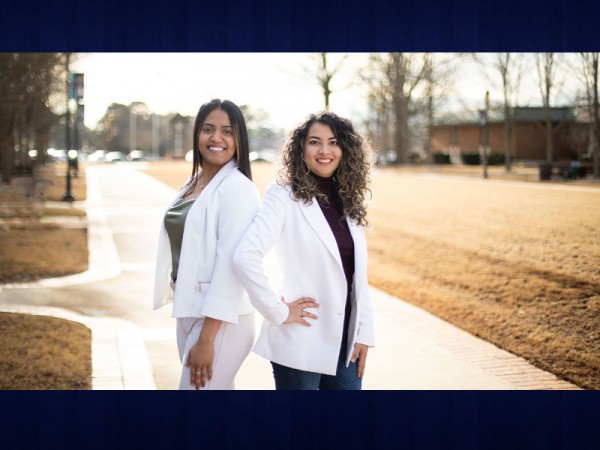CLARKESVILLE — The sounds of patrol car tires squealing as they raced through the parking lots of the Habersham County Fairgrounds this week with blue lights activated were preparing the next generation of the nation’s law enforcement community.
Beginning with the fall of 2015, incoming freshmen at the University of North Georgia pursuing a bachelor's degree in criminal justice have the option to simultaneously earn certification from the Georgia Peace Officers Standards and Training (POST) Council — allowing them to graduate job ready and save thousands of dollars on their training.
This week, 14 of those students participated in their Emergency Vehicle Operation Course (EVOC) in Habersham County, under the watchful eye of veteran law enforcement officers with experience in city and county agencies.
Dr. Butch Newkirk, director of the Public Safety Academy at the University of North Georgia in Dahlonega, provided more details of the unique learning opportunity.
“We have a four-year Public Safety Academy and we work through POST,” Newkirk said. “We’re the only one like it in the United States right now.”
The intensive program differs from the standard basic law enforcement mandate training in Georgia because of its length and combination with a bachelor’s degree in criminal justice.
“What we do is when they come in as a freshman for their bachelor’s degree, our program has all the POST requirements in it, so instead of getting two hours of ethics they get 16 weeks; instead of getting 40 hours of firearms, they get 16 weeks,” Newkirk said. “What we’re going through right now is our emergency vehicle operation course. It’s a mandated course they have to pass. If they fail it, they have to go all the way back through it.”
Students in the UNG Public Safety Academy get the opportunity to get a sense of what it’s like to be behind the wheel of an actual police vehicle.
“We have four 2011 Dodge Chargers we got from the Georgia State Patrol/Georgia Department of Public Safety,” Newkirk said. “We purchased those from them. The university had them cleaned up, painted and fixed and that’s where we’re getting our vehicles from in Atlanta.”
Since the Habersham County Fairgrounds doesn’t have a skid pit to train future officers to drive and maintain control at high speeds in standing water, one of the four vehicles is equipped with a $9,000 to simulate skids.
Classes in the academy typically run 32 students in each year’s class, which is similar to a recruit class at Georgia State Patrol or a fire department where all members learn and train together throughout the program, but those numbers can drop during the students’ time at UNG.
“Some people when they get into it early they find out, ‘I didn’t really want to be a police officer’, and they have time enough in this where they can make that decision,” Newkirk said.
At a time when there is already a shortage of qualified law enforcement personnel due to traditionally low pay, long hours and a volatile climate in many areas, UNG officials know they’ll be offering a valuable commodity by delivering a new generation of officers with a four-year degree in criminal justice, and with expanded training.
“What we’re going to find out of this is what we’re already seeing — we have departments from all over the country coming into our campus wanting to recruit these students,” Newkirk said. “Not only that, they’re getting their training expanded so much. We give them other certifications, their pepper, their taser, their ASP Baton, their patrol rifle — these are all things departments have to pay for. We’re doing it for them.”
Newkirk said the students in the academy already are being recruited heavily.
“They’re highly marketable,” Newkirk said. “We’ve got them being recruited by the State Patrol, city departments, county departments, all over. We had Hillsborough County, Fla., [Sheriff’s Office] up here this morning at the university recruiting. We want to put out a highly-educated officer.”
Newkirk said times are changing, meaning law enforcement must change and adapt, beginning with training.
“Police work is not blue collar work anymore,” Newkirk said. “You have to have an education. You’ve got to know how to do this. You’ve got to be able to communicate with people. That’s what we’re going to see out of this first group. We have a great group of kids — they’re not kids anymore. When they started off, they were kids with me a little over three years ago. Now, they’re grown up, they’re adults, they’re getting the grasp of things and knowing what it means.”
Newkirk said he is proud of the initial batch of students, 14 of the 24 who remain.
“This will be my first graduating class next spring,” Newkirk said. “I love it. I’ve been in law enforcement — I retired 32 years with Toccoa [Police Department]. I finished up that doctorate degree and was fortunate enough that I was teaching at the university when this opportunity came up, and I jumped right into it. I love working with these kids. Right now, we have six classes that are active and they’re all going to graduate one year after each other.”
During the EVOC labs at that Habersham County Fairgrounds, Newkirk was joined by instructors Jonathan Roberts, Robin Krockum, Kevin French and Professor Sallie Parker, coordinator of the UNG Public Safety Academy.
The first two years of study are core classes and lower level criminal justice courses. Labs such as EVOC, firearms, first aid, CPR, taser, pepper spray, patrol rifle and others are toward the end of junior year headed into senior year, Newkirk said.
Manessah Campbell is one of the members of the academy’s first class of students, currently in their junior year.
“I much prefer this to the 13- or 14-week normal mandate program,” Campbell said. “I think I’m getting a lot better education doing it this way. I get more time to understand what’s going on so I’m not coming out having no clue what’s going on.”
Campbell has set her aspirations high, and she is working toward them.
“I want to be in the GBI,” Campbell said without hesitation. “I want to do profiling or major investigations like human trafficking, stuff like that.”
Campbell currently works at the Banks County Detention Center, and said she believes the education she is receiving through the UNG Public Safety Academy is giving her an understanding of the different areas of law enforcement.
Parker explained more about getting into the program.
“You have to be an entering freshman,” Parker said. “Typically, if you’re not a freshman you just have to have less than 29 credit hours. You have to be at least 18 years old, a citizen of the United States. You don’t need to have a criminal history. You need to at least declare your major as criminal justice. It’s only available for those who have an interest in criminal justice, and they need also to be accepted to the University of North Georgia to be considered as well.”
Those interested in joining the incoming class for the fall should not wait to apply.
“Right now, we don’t have a waiting list, and that’s only because we’re a new program at this moment,” Parker said. “We have 32 spots that are available. Once those 32 spots are filled up, we can’t take any more for that class. People need to sign up as quickly as possible, because it can get filled up pretty quickly. We anticipate having a pretty long waiting list in the future.”
Currently there are five classes making their way through the UNG Public Safety Academy, but that’s because initially a new class began in the fall and a second new class began in the spring. Those spring classes didn’t draw the enrollment numbers because of starting mid-year, so each new class of 32 begins in the fall only.
“Thirty-two spots a year is good,” Parker said. “It’s a lot of money to run this program because we have to hire more trainers for each part that they have to do, and it allows us to really focus on a solid 32 people rather than having the two classes running.”
To learn more about the program, log on to https://ung.edu/criminal-justice/index.php and select Public Safety Academy.


